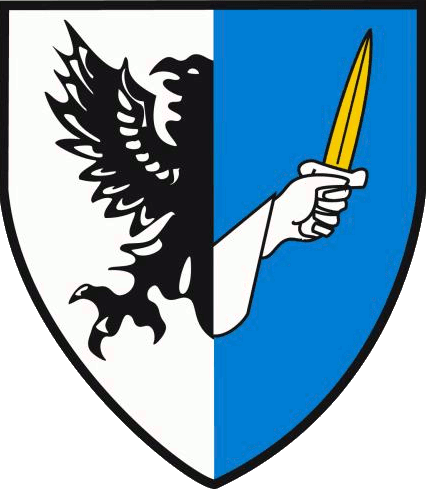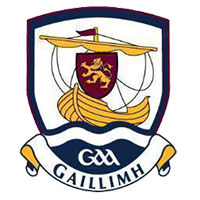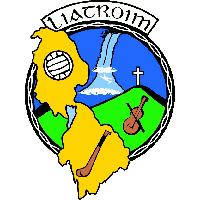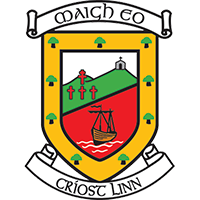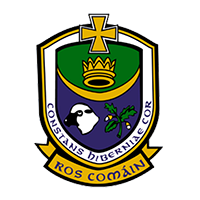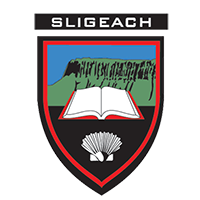Player Capacities covering Child (4 -11 years), Youth (12 – 18 years) and Adult (18+ Years)
Stage 1: Player Capacities (4-6 years of age)
Technical Proficiency
- Develop bilateral coordination incorporating CPKST (catching, passing, kicking, striking with a body part and equipment and Throwing).
- Develop the basic motor skills relevant to learning the technical skills of the game of Hurling and/or Gaelic Football.
- Use of basic equipment such as bean bags, various balls, bats, hurleys etc.
- Use appropriate footwear, clothing and protective equipment
Tactical Prowess
- Develop basic decision- making in relation to where, when and how to gather possession and where, when and how to release possession.
Team Play & Tactical Ploys
- Develop a basic sense of game and movement concepts e.g. cooperative, small sided, invasion games
Physical Fitness
- Develop fundamental movement skills of Agility, Balance and Coordination (ABC) and Running and Jumping Techniques (RJ) through short games and activities.
- Develop an understanding and appreciation of (Gross) movement and mobility
- Using ABC’s, develop basic joint e.g. shoulder, core, spine and ankle mobility and stability.
- Develop multi-directional and segmental (leg/arm) speed.
Participants Feedback
- Develop basic awareness of performance through feedback from play and from the coach
- Develop basic awareness of performance through outcomes e.g. targets, scores, numbers etc.
Psychological Focus
- Develop a positive attitude to self, sport and participation
- Develop confidence in all relevant aspects of player development, with a particular emphasis on the fundamental movement skills, basic motor skills and bilateral coordination.
- Build concentration through active engagement in games and activities
- Develop concentration
- Develop composure through dealing with distractions
- Develop commitment through a determination to practice and master the skills
- Develop the ability to respond to feedback appropriately
Fair Play
- Develop an understanding and appreciation of the simple rules and ethics of sport
- Demonstrate fair play and sportsmanship.
Lifestyle
- Live an active life through engaging in a variety of physical activities and sports
- Develop awareness of factors that affect personal safety and the player’s role in the safety of others
- Develop intrinsic motivation through practice at home particularly in relation to technical proficiency.
- Develop an awareness and understanding of drinking regularly during exercise and eating healthy, nutritious food.
- Use appropriate footwear, clothing and protective gear
Personal
- Be open to and contribute to the enjoyment/fun
- Develop a positive attitude
- Develop teamwork, interaction and social skills and the ability to contribute to the social organisation of games and activities with friends and peers.
Stage 2: Player Capacities (7-9 years of age)
Technical Proficiency
- Progressively refine and combine fundamental skills to Hurling/Football skills (CPKST)
- Progress the development of Hurling/Football skills in a closed environment
- From imaginary, to stationary, to while moving (walking to jogging to running).
- Perform skills of Hurling/Gaelic Football using the right and left hand side of the body i.e. bilateral coordination
- Use of age appropriate footwear, clothing and protective equipment
Tactical Prowess
- Begin to develop decision- making when on and off the ball within open patterns of game play.
Team Play & Tactical Ploys
- Become aware of basic positional role sense through modified games.
- Develop basic communication and support play skills through modified games.
Physical Fitness
- Continue to develop fundamental movement skills of Agility, Balance and Coordination (ABC) and Running and Jumping Techniques (RJ) through short games and activities.
- Develop physical ability (speed, strength power and endurance) through fun games
- Engage in basic resistance exercises using body weight activities
- Develop and maintain flexibility (mobility)
Participants Feedback
- Continued development of performance through feedback from play and from the coach
- Continued development of performance through outcomes e.g. targets, scores, numbers etc.
Psychological Focus
- Develop a positive attitude to self, others and to Gaelic games through the development of relationships with place, community and role models
- Learn to deal with success, disappointment, mistakes and/or failures through continued positive involvement
- Understand the role of practice, warm-up and cool down routine
- Develop confidence (self/team/group/class) in using a variety of skills in playing, training or school environments.
- Develop concentration and attention skills through focusing activities e.g. coach uses trigger words to focus attention
- Set basic individualised goals (identified as targets or challenges)
- Develop the ability to respond to feedback appropriately.
- Set personal goals
Fair Play
- Develop an understanding and appreciation of the simple rules and ethics of sport
- Demonstrate fair play and sportsmanship.
- Develop a respect for order, discipline in playing and training environments.
- Demonstrate respect for peers, coaches and officials and the decisions made by them.
Lifestyle
- Maintain an active lifestyle through further engagement with a variety of physical activities and sports
- Accept parental/guardian/coach support
- Develop good training habits by practicing at home to develop independence of involvement, particularly in relation to technical proficiency and movement flexibility
- Develop a habit of practicing good nutrition and hydration routines.
Personal
- Be open to and contribute to the enjoyment/fun
- Understand the relationship between effort and outcome
- Continue to develop teamwork, interaction and social skills
Stage 3: Player Capacities (10-11 years of age)
Technical Proficiency
- Refine and combine fundamental skills (CPKST) to Hurling/Football skill performance, increasing speed, accuracy, strength, consistency and fluency
- Further progress the development of Hurling/Football skills in a closed environment: from imaginary, to stationary, to while moving (walking to jogging to running).
- Refine the performance of the skills of Hurling/Gaelic Football using the right and left hand side of the body i.e. bilateral coordination
- Use of age appropriate footwear, clothing and protective equipment
Tactical Prowess
- Further develop decision- making when on and off the ball within open patterns of game play
- Deciding who to pass to or who to mark
- Choosing to perform the appropriate skill at the appropriate time
Team Play & Tactical Ploys
- Develop a greater awareness of basic positional role sense through modified games.
- Further develop basic communication and support play skills through modified games.
Physical Fitness
- Further develop fundamental movement skills of Agility, Balance and Coordination (ABC) and Running and Jumping Techniques (RJ) through games and activities utilising more sports specific skills (Throwing, Catching, Passing, Striking and Kicking)
- Continue to develop speed, agility, power and endurance through fun games
- Continue to engage in basic resistance exercises using body weight activities and age appropriate equipment.
- Develop and maintain flexibility (mobility)
- Continue to use ABC’s to develop basic joint e.g. shoulder, core, spine and ankle mobility and stability
- Develop the routine of warming up in preparation for activity and cooling down post activity
- Get sufficient sleep for full recovery
Participants Feedback
- Further development of awareness of performance through feedback
- Further development of awareness of performance through outcomes
- Further development of awareness of performance through reflection
Psychological Focus
- Develop a positive attitude to Gaelic games through the development of relationships with place, community and role models
- Learn to deal with success, disappointment, mistakes and/or failures through continued positive involvement
- Understand the role of practice, warm-up and cool down routine
- Develop confidence (self/team/group/class) in using a variety of skills in playing, training or school environments.
- Develop concentration and attention skills through focusing activities e.g. coach uses trigger words to focus attention
- Continue to set basic individualised goals (identified as targets or challenges)
- Practice simple imagery using the senses (sight, sound, touch, smell) e.g. coach uses triggers to activate a child’s imagination
- Continue to develop the ability to respond to feedback appropriately
- Demonstrate commitment through attendance at games and coaching sessions
- Set goals and learn from success and failure
Fair Play
- Develop an understanding, appreciation and application of simple rules and ethics of sport.
- Demonstrate fair play and sportsmanship
- Develop a respect for discipline and playing and training environments.
- Demonstrate respect for officials and decisions made by them.
- Respect the rules that the group sets for itself
Lifestyle
- Further engagement with a variety of physical activities and sports
- Accept parental/guardian/coach support
- Further develop good training habits by practicing at home to develop independence of involvement, particularly in relation to technical proficiency and movement flexibility
- Further develop a habit of practicing good nutrition and hydration routines.
Personal
- Understand the relationship between effort and outcome
- Continue to develop teamwork, interaction and social skills
Stage 4: Player Capacities (12-13 years of age)
Technical Proficiency
- As an individual, perform the skills of Hurling/Football in a closed environment
- From imaginary, to stationary, to while moving (walking to jogging to running)
- Further develop and consolidate the skills of Hurling/Football incorporating team mates and/or opponents.
- Non-pressurised to pressurised
- Adaptation of skill performance in response to the environment
Tactical Prowess
- Develop relevant decision making in a variety of positions
Team Play & Tactical Ploys
- Understand the fundamental principles of attack and defence
- Creating and Denying Space
- Develop communication and support play skills through pre defined patterns of play e.g. open play and set piece play
- Be able to react and adjust to appropriate patterns of play based on environmental situations e.g. how many players aside
- Understand positional awareness
Physical Fitness
- Further develop fundamental movement skills of Agility, Balance and Coordination (ABC) and Running and Jumping Techniques (RJ) through games and activities utilising more sports specific skills (Throwing, Catching, Passing, Striking and Kicking)
- Continue to develop speed, agility, power and endurance through fun games
- Continue to engage in basic resistance exercises using body weight activities and age appropriate equipment.
- Develop and maintain flexibility (mobility)
- Continue to use ABC’s to develop basic joint e.g. shoulder, core, spine and ankle mobility and stability
- Develop the routine of warming up in preparation for activity and cooling down post activity
- Get sufficient sleep for full recovery
- The emphasis for the player at this stage is age appropriate, balanced (left & right), general physical conditioning through games related activities.
- Develop multi-directional and segmental (leg/arm) speed (through activities of no longer than 5 seconds in duration complete recovery)
- Develop functional control, stability and range of motion through the major joints.
- Develop functional strength through body resistance exercises, emphasising technique, pre Peak Height Velocity (point during puberty where growth tempo is greatest)
- Maintain flexibility through static stretching and dynamic mobility activities (Pre PHV)
- Learn basic running technique.
Participants Feedback
- Continue to develop the capacity to self evaluate performance through feedback
- Be able to evaluate performance of opponents in order to enhance individual action/reactions (the decision making process)
- Informed participation through awareness of personal strengths and challenges
Psychological Focus
- Develop balanced motivational, attitudinal & self confidence skills
- Utilise short and medium term participation based goals
- Begin to develop imagery skills that uses the senses to aid technical proficiency and increase self confidence
- Be aware of physical cues that trigger the psychological traits of patience and control, e.g. developing routines
- Players develop physical (eye contact) and mental tools (cue words) to aid in maintaining concentration at times of activity and rest
- Players develop positive reinforcement through self-talk
Fair Play
- Adhere to the guidelines of the GAA Respect Initiative & Code of Behaviour
- Develop an understanding of controlled aggression
- Demonstrate the ability to communicate with officials, players and management in a non-confrontational manner
- Further develop knowledge and appreciation of the rules of Hurling/Football
Lifestyle
- Understand & appreciate the correlation between playing Gaelic Games and a healthy life style
- Understand and appreciate strategies to facilitate rest and recovery
- Develop an understanding of the implications that positive nutritional habits and appropriate hydration practice can have on performance
Personal
- Develop the skills to be able to integrate oneself and all members of a squad in all aspects of team activity
- Understand the varying degree and rate of change that puberty will bring in an individual context
- Encourage and support team mates
- Demonstrate the ability to communicate with coaches, players and officials in a positive manner
Stage 5: Player Capacities (14-15 years of age)
Technical Proficiency
- Further adaption of skill performance in response to environment
- Awareness and of skills and challenges through guidance & reflection
Tactical Prowess
- Be able to perform and alter decision making based on situational factors e.g environmental conditions (weather, facilities), opponents.
Team Play & Tactical Ploys
- Have a comprehensive knowledge and application of the principles of attack/defence
- Further develop team play skills in open competitive environment
Physical Fitness
- Continued development of functional control, stability and range of motion through the major joints
- Identify the need to taper performance in order to maximize recovery at appropriate times
- Maintain flexibility
- Maximise the opportunity for speed development
Participants Feedback
- Develop greater awareness of self performance based on internal and external feedback (including structured testing)
- Continue to inform development of skills through awareness of individual strengths and challenges (including personal style of play).
Psychological Focus
- Utilise self talk to create/maintain and enhance focus and thought control
- Dealing with distractions and self worth
- Develop long term performance and outcome goals to inform player advancement
- Utilise imagery techniques to prepare for competition, different situations/problems and performance strategies
Fair Play & Rules
- Continue to adhere to the guidelines of the GAA Respect Initiative and Code of Behaviour
- Develop an appreciation of, and responsibility for, ones own actions and their consequences for self and team
- Continue to develop knowledge of the rules
Lifestyle
- Utilise a training and performance diary/log to monitor and inform development
- Awareness of one’s own body limitations
- Players will have injury prevention strategies while having knowledge of injury management protocol
- Continue to increase appreciation of the link between playing and a healthy lifestyle
Personal
- Continued personal development as a support mechanism for lifelong learning
- Develop the responsibility to prepare fully for training and competition
Stage 6: Player Capacities (16-17 years of age)
Technical Proficiency
- Be able to perform the skills of Hurling/Football to an autonomous level in an open environment incorporating team mates and/or opponents.
Tactical Prowess
- Utilise event and position specific tactical preparation to further develop capacity to make appropriate decisions at the right time.
Team Play & Tactical Ploys
- Be able to alter team play/style/tactical ploys based on opponents and environmental factors as practiced in a training environment
Physical Fitness
- Physical conditioning is of a high standard with extra focus appropriate to position/unit requirements (informed by individual fitness testing and screening)
- Continued development of functional control, stability and range of motion through the major joints
- Introduction to major lifting techniques and plyometrics under supervision
- Understanding anatomical adaptation and progression
Participants Feedback
- Be able to monitor and evaluate an opponents decision making, style of play and technical ability and utilise this information to greater enable one’s own decision making process
- Utilise team and opposition playing facts to improve development and performance
- Continue to inform development of skills through awareness of individual strengths and challenges (including personal style of play).
- Be able to undertake self evaluation to maximize potential
Psychological Focus
- Utilise self talk to further create/maintain and enhance focus and thought control
- Dealing with distractions and self worth
- Establish individual performance routines and pre-competition preparation that complimentary to team preparations
- Utilise imagery techniques to prepare for competition, different situations/problems and performance strategies
- Combining personal goals with team goals
Fair Play & Rules
- Develop an awareness of ones rights and responsibilities as a player
- Apply the rules of the game to maximise performance within a spirit of fair play and respect for all involved
- Adhere to GAA Code of Behaviour.
Lifestyle
- Be aware of and utilise ancillary supports e.g basic performance analysis, physiotherapy to enhance individual development
- Develop an individually appropriate fuelling routine around training and competition
- Manage study, part time work, career and sport options to ensure a healthy life balance
Personal
- Integration of sport, career and life goals
- Be aware of the need to address economic and independence issues
- Understand ASAP programme and support mechanisms
Stage 7: Player Capacities (18-21 years of age)
Technical Proficiency
- Continue the refinement of skills to achieve autonomous performance in match conditions
Tactical Prowess
- Display the ability to alter decision making in real time to respond to oppositional, situational, environmental, and risk management factors
- Refine the ability to create and/or deny time and space through individual decision making
Team Play & Tactical Ploys
- Refine the understanding of team play principles
- Understand the various systems of play that exist
- Function effectively in a variety of systems of play
Physical Fitness
- Maintain and improve, where possible, physical capacities with a view to maximising individual and team performance
- Be functionally capable to perform resistance training exercises
Participants Feedback
- Utilise performance analysis techniques/tools to inform performance development and games strategies
- analyze and interpret feedback in order to put in place a strategy to improve key areas for development
- Employ performance analysis techniques to allow focus on areas of individual development
Psychological Focus
- To develop personal routines to enhance psychological focus
- Utilise well developed, refined and individualised mental skills and routines
- Continually review, and where necessary adjust, short, medium and long term goals to ensure performance standards
Fair Play
- To have an understanding that players are role models and should act as such
- Players will continue to show respect for match officials, coaches, team mates, spectators and opponents
- Players will continue to play in a competitive manner while always facilitating an environment where their safety and the safety of others is paramount
- Be aware of the GAA social media usage guidelines
Lifestyle
- Refine knowledge of Lifestyle and its implications on performance i.e
- Rest and Recovery
- Injury reduction strategies
- Player diaries
- Nutrition/hydration/supplements
- Appropriate life and sporting balance
Personal
- Full integration of sport, career and life goals
- The ability to priorities each of these when necessary
Stage 7: Player Capacities (22+ years of age)
Technical Proficiency
- Autonomously Execute the full range of technical skills at match conditions
Tactical Prowess
- The ability to make the right decisions under match conditions
- Be able to create and/or deny time and space through individual decision making
Team Play & Tactical Ploys
- Function proficiently in a variety of systems of play
- Adapt to opposing systems of play as part of a unit
Physical Fitness
- Be able to maintain your physical performance for the entire duration of the game
Participants Feedback
- To process all relevant feedback and respond appropriately
- Refine the ability to analyze and interpret feedback in order to put in place a strategy to improve key areas for development
Psychological Focus
- The competent player needs to understand his own psychological make up, in order to be aware of and utilize the most appropriate coping mechanisms to perform to their maximum.
- focusing/refocusing techniques
- Develop personalised routines
- Performance Cues
- Visualisation
- Goal Setting
Fair Play
- Know the rules of the game
- Continue to have an understanding that players are role models and should act as such
- Players will continue to show respect for match officials, coaches, team mates, spectators and opponents
- Players will continue to play in a competitive manner while always facilitating an environment where their safety and the safety of others is paramount
Lifestyle
- Maintain and further refine knowledge of Lifestyle and its implications on performance i.e
- Rest and Recovery
- Injury reduction strategies
- Player diaries
- Nutrition/hydration/supplements
- Appropriate life and sporting balance
Personal
- Be able to devise a personal development plan based on key areas for development while at the same time maintaining a healthy life balance
